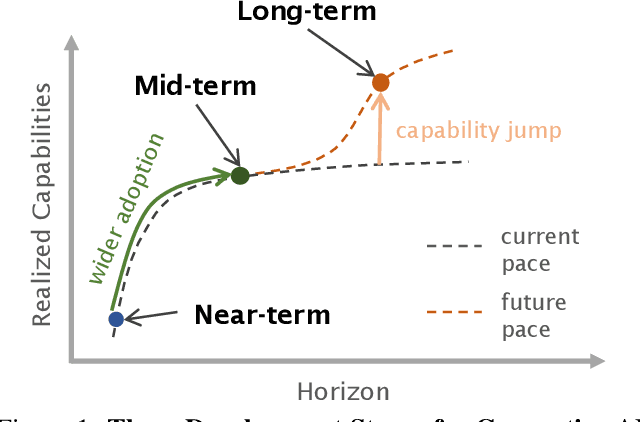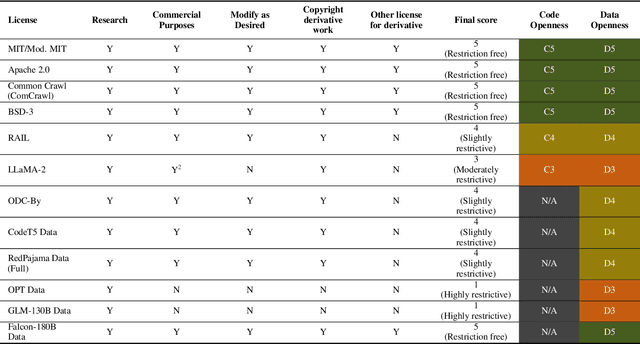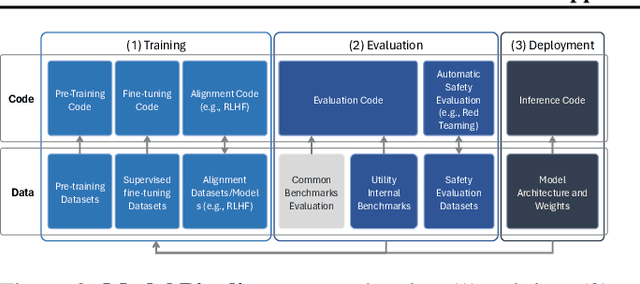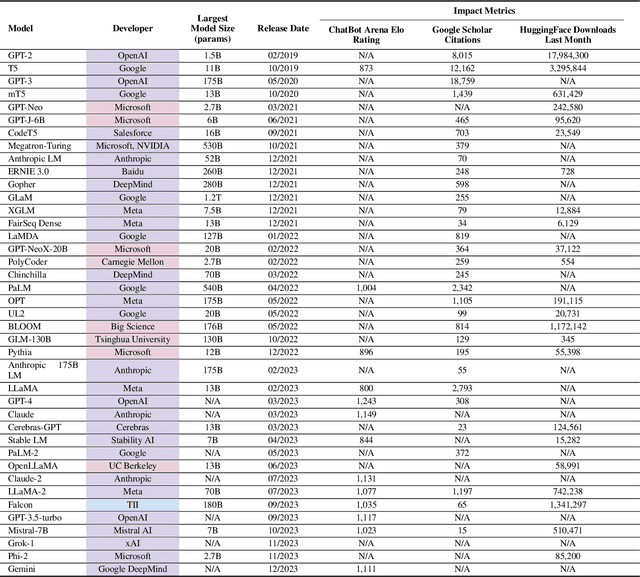Fabro Steibel
Risks and Opportunities of Open-Source Generative AI
May 14, 2024



Abstract:Applications of Generative AI (Gen AI) are expected to revolutionize a number of different areas, ranging from science & medicine to education. The potential for these seismic changes has triggered a lively debate about the potential risks of the technology, and resulted in calls for tighter regulation, in particular from some of the major tech companies who are leading in AI development. This regulation is likely to put at risk the budding field of open-source generative AI. Using a three-stage framework for Gen AI development (near, mid and long-term), we analyze the risks and opportunities of open-source generative AI models with similar capabilities to the ones currently available (near to mid-term) and with greater capabilities (long-term). We argue that, overall, the benefits of open-source Gen AI outweigh its risks. As such, we encourage the open sourcing of models, training and evaluation data, and provide a set of recommendations and best practices for managing risks associated with open-source generative AI.
Near to Mid-term Risks and Opportunities of Open Source Generative AI
Apr 25, 2024



Abstract:In the next few years, applications of Generative AI are expected to revolutionize a number of different areas, ranging from science & medicine to education. The potential for these seismic changes has triggered a lively debate about potential risks and resulted in calls for tighter regulation, in particular from some of the major tech companies who are leading in AI development. This regulation is likely to put at risk the budding field of open source Generative AI. We argue for the responsible open sourcing of generative AI models in the near and medium term. To set the stage, we first introduce an AI openness taxonomy system and apply it to 40 current large language models. We then outline differential benefits and risks of open versus closed source AI and present potential risk mitigation, ranging from best practices to calls for technical and scientific contributions. We hope that this report will add a much needed missing voice to the current public discourse on near to mid-term AI safety and other societal impact.
 Add to Chrome
Add to Chrome Add to Firefox
Add to Firefox Add to Edge
Add to Edge